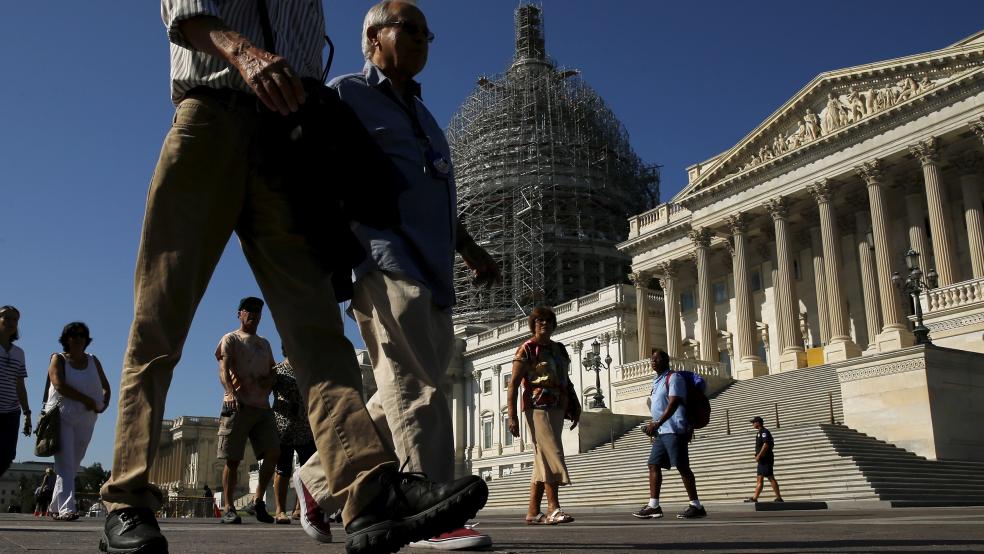If a shutdown happens, essential national security and public safety programs would continue. So would major benefit programs such as Medicare health insurance and Social Security retirement benefits for older people.
But many civilian employees would go home without pay. Here is a look at the impact.FEDERAL WORKERSUp to 1 million U.S. workers could face furloughs without pay beginning on Oct 1. In a 17-day shutdown in October 2013, an estimated 850,000 workers were idled. Pay was suspended but later restored for them. A small number of "excepted" employees, such as air traffic controllers, prison guards and meat inspectors, would keep working. Furloughed employees could face penalties if they tried to work during the shutdown.FINANCIAL MARKET CONSEQUENCESApart from potential market swings, companies hoping to raise money in an initial public offering could face delays.Businesses will still be able to file to the U.S. Securities and Exchange Commission, but it would stop processing applications during a shutdown.Drug companies awaiting decisions from the Food and Drug Administration could see delays.GOVERNMENT CONTRACTORSA shutdown lasting less than two weeks would not hurt big defense contractors, which can survive temporarily without federal contract payments, said ratings agency Standard & Poor's. But a longer shutdown could weaken the financial profiles and liquidity positions of smaller defense contractors.U.S. ARMED SERVICESAll military personnel would continue in a normal duty status. But many civilian employees would be temporarily furloughed. Official furlough notices will be issued on Oct. 1 if no funding deal has been reached.FEDERAL COURTSFederal courts will remain open for about 10 business days into a shutdown. By Oct. 15, the court system would need to provide more guidance. INTERNAL REVENUE SERVICEOct. 15 is a major deadline for Americans who got an extension to file tax returns that were due on April 15. The IRS will accept returns and payments during a shutdown but will suspend many other activities. About 90 percent of its workforce would be furloughed, meaning call centers would be closed and audits halted. (Reporting by David Lawder; Editing by Kevin Drawbaugh and Lisa Von Ahn)Factbox: What happens in a U.S. government shutdown over funding

© Jonathan Ernst / Reuters



